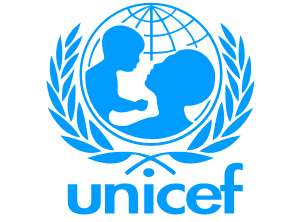The United Nations report has shown that there are 1.9 million people displaced currently from their homes in North-East, Nigeria.
SEE ALSO: Roundup: COVID-19 Cases Surpass 40,000 Mark in India
The Communications Specialist, UNICEF Nigeria, Mr Geoffrey Njoku, disclosed this in a statement issued in Abuja on Tuesday.
The UN report warned that internally-displaced children in Nigeria were among the world’s most vulnerable to the COVID-19 pandemic.
It said that the warning came, as the organisation released a report looking at the risks and challenges facing internally- displaced children, and the urgent actions needed to protect them.
“In North-East, Nigeria, there are currently 1.9 million people displaced from their homes. Sixty percent of them are children, with one in four under the age of five,” it said.
The report stated that globally, an estimated 19 million children, more than ever before, were living in displacement within their own countries, due to conflict and violence in 2019.
“’Lost at Home’ looks at the risks and challenges internally- displaced children face and the urgent actions needed to protect them,” it said.
It said that as COVID-19 continued to spread around the world, the internally- displaced children were among the most vulnerable to its direct and indirect impacts.
“Hundreds of thousands of children in North-East, Nigeria, are living in the shadow of conflict and now in the increasingly-challenging shadow of a global pandemic and its potential socio-economic aftermath.
“When a new crisis like the COVID-19 pandemic emerges, displaced children are especially vulnerable and the gaps in our ability to keep them safe are even starker.
“We must urgently work together; all of us, government and humanitarian partners, to keep them safe, healthy, learning and protected,” it said.
According to the report, the COVID-19 pandemic is making a critical situation for displaced children and families around the world even worse.
It said that they often lived in overcrowded camps or informal settlements, where access to basic hygiene and health services was limited, and where physical distancing was not possible.
“This is true in Nigeria’s North-East, where conditions pose a particular challenge to containing the possible spread of diseases like COVID-19.
“Internally-displaced children around the world often lack access to basic services and are at risk of exposure to violence, exploitation, abuse and trafficking,” according to the report.
It said that they were also at risk of child labour, child marriage and family separation, all of which posed direct threats to their health and safety.
According to the report, there are 12 million new displacements of children in 2019, with 3.8 million of them caused by conflict and violence and 8.2 million by disasters linked mostly to weather-related events, like flooding and storms.
It said that UNICEF and its partners were working to protect displaced children in the North-East through critical health and nutrition services.
Others, it said, were provision of access to life-saving WASH (Water, Sanitation and Hygiene) services through accelerated construction of facilities, and adapted solutions to continuing education, including provision of radio for distance learning, while schools were closed.
“What we really need now are strategic investments and united efforts by government, civil society organisations, private sector, humanitarian actors and the children themselves, to find solutions to the effects of displacement, especially as we face the COVID-19 pandemic.
“The efforts must also address and help mitigate the long term impacts this can have on children’s health and education,” it said.

